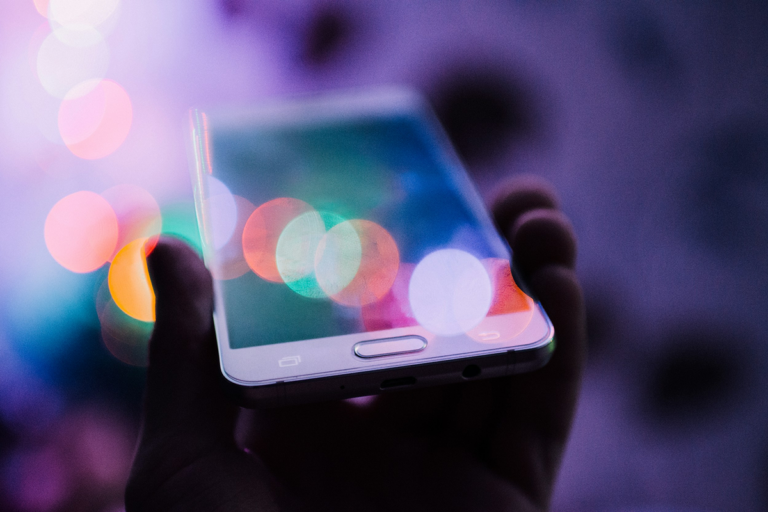
We are all humans.
That proclamation is profoundly important before we consider technology’s influence on mental health. We can only begin to grasp the challenges we’re all facing by viewing mental health through a lens of compassion, care and humanity.
Let’s remember that we all breathe, feel, rejoice and cry. Each of us has our individual aspirations, goals, fears, troubles and worries. Our upbringing, familial structures, and environment set the rhythm of each of our lives.
Our job affects our purpose. Our past and current relationships define our future. We are the sum of countless parts.
We are exceptionally complex creatures expected to fit cultural and societal norms. Yet at the same time we are revered for our individualism, rebellion and apparent self-control of our destinies. And modern technology only exaggerates, amplifies and intensifies these pressures. Our brains are constantly stimulated. It’s little surprise then, that all generations, especially those who have grown up with social media throughout their formative years, are more openly questioning how they feel, what their apparent worth is, and feeling a resultant pressure on their all-round wellbeing and mental health.
Humanity, technology and mental health is a complex issue that we’re only now beginning to unpack.
Technology is a wonderfully dangerous thing
I’m not a historian, psychologist or anthropologist. Anyone expecting an analysis of whether humans are equipped to deal with the rapid seismic changes prompted by technology has come to the wrong place.
Instead, I intend to share how technologies are redrawing how we operate within the workplace and how those technologies underpin our mental health. I will also explore how we could proceed with humans at the heart of every decision and foster healthier relationships with technology as we progress forward into the future.
But first, why am I equipped to discuss this?
Having worked with some of the world’s largest organisations, public services, government bodies and charities, I’ve learned much about technology’s impact on people’s performance and their development at work.
I have seen leaders use technology to drive performance improvement through their organisations, elevate their professional standing, strengthen their personal networks and reinforce the importance of mental health.
I have seen deep connections forged between people and technology and creativity unleashed as a result of it.
I have even seen technology enhance the promotion of and enable better mental health to wide networks of people. It’s remarkable to observe technology’s incredible force for good in this world at times.
Yet, I have also seen the most competent, strong-willed professionals feel exceptional levels of pressure and anxiety. Anxiety which is exacerbated, elevated or accelerated by the rapid rise of technology and its impact on the modern working professional today.
With another new era of technology emerging with AI, now is the time for companies to place safeguards around new technologies so people can be protected and can know their sense of value to the current and future workplace.
People find themselves in a constant battle to try to wrap their heads around rapidly evolving technologies, and contemplating how these technological advancements have moved the once clear and well-understood goalposts.
Executives can all too easily feel the pressure of not ‘Keeping up with the Joneses’, both for themselves personally, as well as for their businesses as a whole. A pressure which gets intensified by compulsive social media scrolling where we silently compare ourselves to others and their projected confidence and successes. Weariness and stress can be abundant for leaders today.
Then atop all of this, AI’s emergence has threatened job security, making entire industries and swathes of business professionals evaluate their sense of being.
Using the tools at our disposal to embrace change
Technology’s massive advancements are a Pandora’s Box – once unleashed, there’s no turning back. Attempting to repel or reverse recent technological evolutions and their effect is futile so we should instead focus our efforts and attention on current problems and future solutions.
For example, we have begun to understand and comprehend social media’s dark side. Society was slow to react. Sluggish regulation, hasty innovation and idealistic thinking mean that we are only now learning the negative and in some cases, life harming effects of the rise of this technology over the last twenty years.
With another new era of technology emerging with AI, now is the time for companies to place safeguards around new technologies so people can be protected and can know their sense of value to the current and future workplace.
Leaders have a moral duty to do this. Profiteering at all costs helps no one. Uncertainty is toxic and contagious. The more leaders communicate with their people, reinforce their teams’ importance to the business, guide humans through change, and empower them with new skills unlocked by new technologies, the better the outcomes will be for everyone – performance included.
Thinking is feeling
A fear of being replaced. A fear of becoming irrelevant. A fear of being unable to find a new job because technology can do it all.
Be honest.
You’ve thought it, haven’t you
These unsettling questions are undeniably contributing to anxieties and mental health issues. To worry is to be human, after all.
For seasoned generations, the fear could be being replaced for not keeping up with or understanding the latest technology. For younger generations, the fear could be never getting the opportunity at all, with technology taking on an entry level role.
Technology doesn’t have emotions, so it doesn’t care about when we:
- Worry about staying on top of an ever-increasing workload (thanks to new technology)
- Feel inadequate when we’re not using AI to save time or work faster
- Struggle when we see people post every day on LinkedIn but can’t find time ourselves
- Lack an opinion on how emerging technologies can be used within our businesses
- Go from meeting to meeting to meeting virtually with no time even to catch our breath
- No longer feel we can believe what we see and hear, finding ourselves endlessly questioning if it’s truth or misdirection and if a human even created it
- Are mentally exhausted from the media’s bombardment of new technologies and the apparent threat they pose to job displacement
It all feels enormous, and we all feel very insignificant suddenly.
Balancing acts
I know this feeling. I walked this journey myself and am thankful to have come out the other side, better equipped to navigate it all. These days I’m doubling down on helping leaders better understand how to create healthier, happier, more productive and more engaged teams.
You see, it isn’t about using more technology to reduce the negative effects of other technology; it’s about reclaiming technology for what it is and always will be.
A tool
Balance is absolutely critical.
Everett Rogers’ diffusion of innovation theory shows that people adopt technologies at different times.
With some rounding for the sake of our argument, only 10-20% of the population are early adopters of technology, 60% tend to be cynical-in-nature toward new things, and a further 15-20% are anti-change altogether.
People adopt technologies at different speeds but what’s most important is that people need to feel safe using what they’re comfortable with.
We should let people occupy whatever camp they wish. People should be encouraged to share their views on incoming technologies and their use in the workplace, not lambasted for not partaking in a certain new technology or for being cautious about its value or threat to them personally.
Curiosity breeds understanding. This creates a sense of belonging – where employees feel their opinions are valued and appreciated, which unlocks emotional safety. The final result is less anxiety and healthier mental health and wellbeing.
Are we overanalysing?
Humans love evangelising and philosophising about our place in the universe. It’s what we do.
Pause for a moment, however. Are we putting too much expectation on recent technologies? Are we just experiencing another wave of snazzy, shiny things, in this instance AI, that’ll soon fade into relative insignificance once the next innovation comes about and AI becomes part of our everyday norm
After all, the current emergence of new technology is no different from the emergent technology changes we’ve seen before. MP3 players displaced CD players, Uber displaced taxis, Airbnb displaced large swathes of traditional travel agents and dependence on hotel chains, Microsoft Teams diminished the need for a physical office phone, and together with the smartphone meant we could work together, and were contactable, pretty much anywhere in the world.
Most of us adjusted to all of those healthily, and I don’t doubt we’ll also adjust to AI and other emerging technologies in due course.
For example, AI is in the incubation phase at the moment, and as a result, no definitively clear use case has been established for it as yet. Everyone is vying to be the “breakthrough product” or company in this space, but in the end, history teaches us that one or two companies will dominate this field eventually, and we also know that we’ll find our way of incorporating the tech into everyday life just like we listen to Spotify, book holidays in other people’s homes, take Ubers and talk to colleagues and our loved ones face-to-face from remote locations.
We’re born to be humans, not machines
Humankind’s history informs us that we weren’t designed to be inside office blocks but are instead wired to be amongst nature. This is why our mental health rebounds positively amongst natural things like plants, trees, anywhere within the great outdoors really.
In the hyper-connected online world we’ve found ourselves operating in today, people need to be actively encouraged to have regular time away from screens. We need to have balance in our use of technology and leaders have an active – and critical – role to play in fostering that balance!
The key to the mental health crisis fuelled by the rise of technology is to have permission to step away from it. To have time without it. To avoid being in a virtual environment where you can too easily find yourself comparing or competing with others. And yes, that applies at work as much as it does to a person’s life away from work.
Organisations and business leaders must cultivate a culture of discovering technology but at a pace that enables people to come along on the journey at a pace they are comfortable with. Be an ‘enabler of change’ and of your people’s embracing of modern technology.
Listen to your people.
Can mental health assistive technologies like mindfulness apps or journaling tools be valuable tools in positively impacting people’s mental health and would people appreciate their introduction into the workplace to help them achieve better mental health and an improved sense of wellbeing – or would they prefer the chance to put their phones away at the end of the work day and come back fresh the next morning?
Ask them their views. Are they showing signs of technology burnout or mental health drain, perhaps because the business has proclaimed that everyone has to use the latest invention or tech introduction – like artificial intelligence – to keep up with competitors or because there’s a drive to squeeze every ounce of productivity from people?
In the uber-fast, ultra-competitive business landscape we operate in today, are we devoting enough time to the fundamentals of human wellbeing? Encouraging your people to get enough sleep, good nutrition, some exercise, good hydration and to have joy in doing things outside of work with those they love creates healthier businesses, more motivated teams and more resilient individuals after all.
That’s how we address this mental health crisis. Through balance and an increased focus on what humans need to be their best selves.
That will produce a better world for all of us, won’t it?

Matthew Jenkins
Matthew Jenkins is the founder of Dream and Leap, a strategic consultancy that blends cutting edge technology with highly experienced change consulting to help leaders identify and navigate performance related change in their organisation, its teams and its people.



